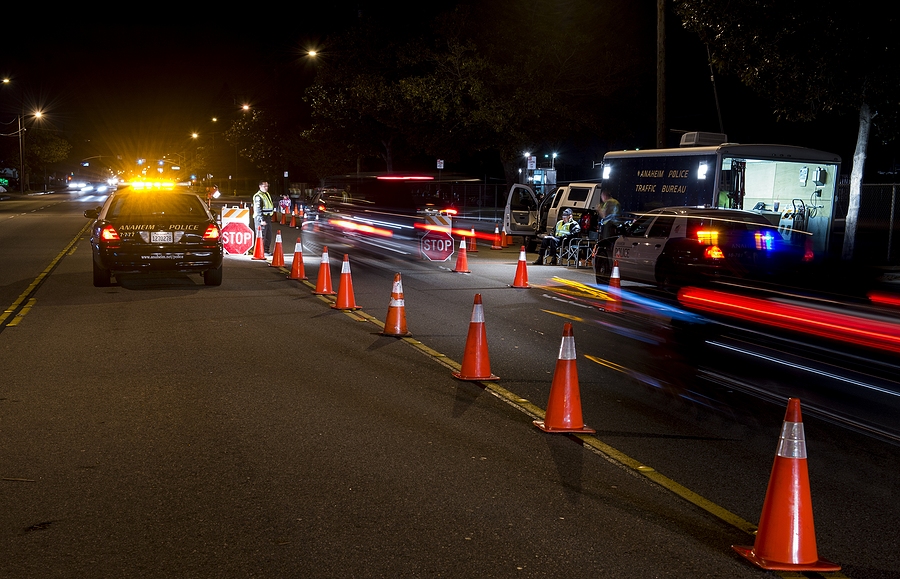The mere thought of an outstanding arrest warrant is enough to keep anyone awake at night. That nagging feeling of uncertainty—wondering if a simple traffic stop could turn into a trip to jail—is a heavy burden to carry. Whether it stems from a missed court date, an unpaid fine, or a misunderstanding regarding a legal matter, ignoring the possibility of a warrant won’t make it go away. In fact, it usually makes the situation worse.
A warrant is a legal document authorized by a judge that allows law enforcement to perform a specific act, such as making an arrest or searching a property. In Hamilton County, Indiana, warrants are taken seriously, and law enforcement agencies actively execute them.
However, you have options. You don’t have to live in fear of the unknown. By taking proactive steps to verify your warrant status, you can regain control of the situation and handle it on your own terms. This guide provides a comprehensive look at how to check for active warrants in Hamilton County, the risks involved with each method, and the steps you should take if you find your name on the list.

Methods to Check Warrant Status
There are several ways to determine if there is an active warrant for your arrest in Hamilton County. Some methods are discreet and can be done from the privacy of your home, while others involve direct contact with authorities.
Online Search Options
For most people, the internet is the first and safest place to start. Hamilton County provides digital resources that allow public access to certain records.
- Hamilton County Sheriff’s Office Open Warrants: The Sheriff’s Office maintains an “Open Warrants” search tool on their official website. This database allows you to search by name or warrant number. It is important to note that this database is typically updated daily around 4:00 PM.
- MyCase.in.gov: Indiana’s statewide court case management system, MyCase, is an invaluable resource. By searching your name and date of birth, you can view your case history. If a case is listed as “Active” or if there is a notation of “Failure to Appear” or “Warrant Issued,” this is a strong indicator of your status.
Perform an Indiana Inmate Search Now ☑
Contacting the Clerk’s Office
The Hamilton County Clerk’s Office is the official record-keeper for county-level court cases, including criminal and traffic matters. They have the most up-to-date information regarding court orders.
You can contact the Clerk’s Office directly to inquire about your status. When speaking with them, be polite and direct. You can reach the office by phone at 317-776-9629. If you prefer to go in person—though this carries risks if a warrant exists—their office is located at:
1 Hamilton County Square, Suite 106
Noblesville, IN 46060
Contacting the Sheriff’s Office
The Hamilton County Sheriff’s Office executes warrants and manages the county jail. They offer a verification line for active warrants.
- During Business Hours: Call 317-773-1872.
- After Hours: Call 317-776-9800.
Warning: While calling is generally safer than visiting in person, you should be cautious. If you choose to visit the Sheriff’s Office or the Justice Center in person to ask about a warrant, and one does exist, you will almost certainly be arrested on the spot.
Hiring an Attorney
Perhaps the safest and most strategic method is to hire a criminal defense attorney to check on your behalf. An attorney can contact the courts and law enforcement without the risk of immediate arrest. Because of attorney-client privilege, they are not obligated to disclose your location to the police.
If a warrant is found, an attorney can advise you on the specifics of the bond, negotiate a surrender, or potentially file a motion to recall the warrant (set it aside) and schedule a new court date without you ever stepping foot in a jail cell.
Information You Will Need to Verify a Warrant
To perform an accurate search, you need to have specific details ready. Government databases are vast, and common names can lead to confusion. Ensure you have the following information:
- Full Legal Name: The name exactly as it appears on your driver’s license or ID.
- Date of Birth: This is crucial for distinguishing between individuals with the same name.
- Case Number: If you know the specific court case associated with the potential warrant, this is the fastest way to get answers.
- Driver’s License Number: This can sometimes assist attorneys or bondsmen in verifying your identity.
Need Help with a Hamilton County Warrant? Contact Us Now ✅
Limitations and Considerations
While the tools available to the public are helpful, they are not infallible. Understanding the limitations of these search methods is important for managing your expectations and your safety.
Data Lags and Updates
Databases are not always updated in real-time. As noted with the Hamilton County Sheriff’s online tool, updates may occur once a day. A warrant issued at 9:00 AM might not appear online until the following evening. Similarly, if a warrant is recalled or served, it may take time for the system to reflect that you are in the clear.
Sealed Warrants
Not all warrants are public record. In sensitive criminal investigations, a judge may sign a “sealed” warrant. This is done to prevent the suspect from fleeing or destroying evidence. A sealed warrant will not appear on MyCase or the Sheriff’s open warrant search. In these instances, you likely won’t know about the warrant until law enforcement serves it.
Accuracy Disclaimer
Government websites often carry disclaimers stating they are not liable for the accuracy of the information provided. Relying solely on a free online search can be risky. If you have a strong suspicion that a warrant exists but it isn’t showing up online, consulting a lawyer is the best course of action.
Steps to Take If You Find a Warrant
Discovering there is an active warrant for your arrest is frightening, but panic will only cloud your judgment. If your search confirms a warrant, follow these steps immediately.
1. Do Not Ignore It
Hoping the warrant will disappear is a dangerous strategy. It won’t expire, and it will follow you indefinitely. You risk being arrested at your workplace, during a routine traffic stop, or in front of your family. Handling it proactively is always better than being caught off guard.
2. Contact a Criminal Defense Attorney
As mentioned earlier, a lawyer is your best advocate. They can verify the details of the warrant, such as the bond amount and the underlying charge. They can also advise you on whether you need to turn yourself in or if the matter can be resolved through a court filing.
3. Contact a Bail Bondsman
If the warrant has a bond attached to it (meaning you can pay to be released), you should contact a bail bond agency before you surrender. This process is known as a “walk-through” or prearranged bail. It significantly speeds up the booking process, ensuring you spend as little time in custody as possible.
4. Arrange a Surrender
If arrest is unavoidable, arrange to turn yourself in. Doing this on your terms allows you to notify your employer, arrange childcare, and secure your vehicle. It also looks better to the court; surrendering voluntarily demonstrates that you are taking responsibility, which can sometimes result in a lower bond or better release conditions.
How to Avoid Warrants in the Future
Most warrants in Hamilton County are “bench warrants,” issued because a defendant failed to appear for a scheduled court hearing. Avoiding this situation is often straightforward if you stay organized.
- Update Your Address: Ensure the court and the Bureau of Motor Vehicles (BMV) have your current mailing address. If the court mails a notice to an old apartment and you never receive it, you are still responsible for showing up.
- Track Your Dates: If you have a pending case, keep a calendar of all court dates.
- Communicate: If an emergency arises (like a hospitalization) that prevents you from attending court, contact the Clerk’s Office or your attorney immediately. Judges are more likely to grant a continuance if they are notified in advance rather than after the fact.
- Pay Traffic Tickets: Unpaid tickets can escalate into license suspensions and, eventually, criminal misdemeanors for driving while suspended, leading to warrants.
Taking the Next Step
Living with the threat of an arrest warrant is unsustainable. It affects your mental health, your employment stability, and your family life. The judicial system in Hamilton County is strict, but it also provides pathways to resolve these issues. By verifying your status and taking appropriate legal action, you can stop looking over your shoulder and start moving forward.
If you have confirmed that you have an active warrant, do not face the system alone. Securing your release before you even step foot in the jail is the smartest move you can make.
If you have discovered an active warrant, we can help you navigate the surrender process quickly and discreetly. We offer prearranged bail bonds, allowing you to complete paperwork ahead of time so you can be processed and released as fast as possible. Don’t wait to be arrested—take control of the situation today. Contact our Hamilton County bail bond agents now for a confidential consultation.
Related Post: Understanding Arrest Warrants in Indiana: A Complete Guide









